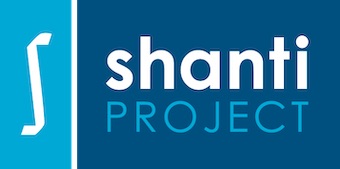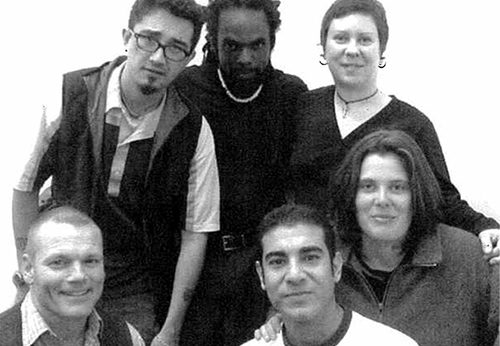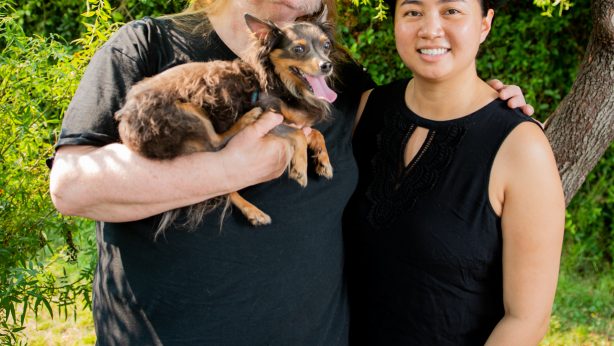SF Has a Powerful Urge to Care
Given what has transpired in our nation over the last several years, it is hard to argue with what then-Senator Barack Obama asserted in 2006: that America indeed suffers from an “empathy deficit.” The research clearly supports this viewpoint. In fact, a 30-year meta-analysis on empathy in the U.S. revealed that empathy has been on a continual decline for every age group in the country — with the most notable drop occurring among young and college-aged adults for whom empathy dropped over 30% (while at the same time, for whom narcissism increased by nearly 60%).
Amid this national decline in kindness, it is easy to forget that our species actually has an inherent genetic disposition for compassion — we are neurologically hard-wired to empathize with each other, and many modern scientists and academics now credit this need to care as a principal reason human beings have made it as far as we have. Or, as Shanti Project’s founder, Charles Garfield, Ph.D., often says, “our need to care is as great as our need for care.” And as surreal and frightening as the past eight weeks have been, I have been buoyed by the surge of this need to care that has sprung up all around us.
As an organization that builds human connections to reduce isolation and increase quality of life, Shanti has had a unique vantage point to witness just how powerful our collective need to care is and how it can provide a beacon of hope in the darkest moments. I am reminded of what Mr. Rogers once said his mother shared with him about times of disaster: “Look for the helpers. You will always find people who are helping.” And San Francisco most certainly abounds with these helpers — from heroic health professionals to all the brave folks providing essential services at grocery stores, pharmacies, and beyond to our many incredible sister safety-net nonprofits that continue to offer vital support to our most marginalized.
Shortly after Mayor London Breed announced San Francisco would be sheltering in place, the city’s Department of Disability and Aging Services contacted Shanti and asked us to partner with them in response to COVID-19. Too many vulnerable San Franciscans, including the elderly and those with disabilities, are left homebound without food and other essentials. Shanti quickly created a citywide emergency response program, where volunteers would be recruited, vetted, and supported as they offered help such as meal pick-up, grocery shopping, dog walking, phone check-ins, and other practical tasks for those who are unable to leave their homes.
The COVID-19 Emergency Response Volunteer Program, or CERV, has been up and running for only a few weeks, and already well over 700 applications have been submitted by San Franciscans who want to be able to do something — to do anything — that can be of assistance to their vulnerable neighbors most impacted during the pandemic. The diversity of these volunteers is striking and includes college students, seasoned professionals, young tech workers, and people of all ages who themselves are coping with the sudden loss of their own employment.
They all have expressed a common sentiment; they feel compelled to be of service to their community. CERV represents the best in human nature. Recently, we received an urgent evening request from the city’s Emergency Operations Center; there was a large quarantined family that was all out of food. We shared this request to only a subsection of CERV volunteers, and within an hour, we received more than a dozen replies from people who wanted to provide this urgent help. This type of compassionate impulse is repeated countless times each day. CERV is just one of many efforts all across the city, formal and informal, that have been providing the essential kindness of good neighbors during COVID-19.
I am not one to say there are silver linings to horrible situations (it takes away from the magnitude of pain and suffering of those most impacted in a crisis), but we would be remiss if we did not pause to remind ourselves of who we really are, and it behooves us, amid our daily anxieties and challenges, to appreciate the basic goodness of so many people who have risen to meet the great health challenge of this time.
Being part of an organization that values the power of personal, compassionate connection above all else, the paradox of physical distancing in this critical time is not lost on me. But as countless San Franciscans demonstrate each day, physical distancing does not have to mean complete isolation. In this uniquely fragile time, we are reminded that in times of crisis and despair, San Francisco does not abandon our most marginalized. While we must physically distance ourselves, we find connection, we find compassion, we find the City of Saint Francis once again living up to its namesake in its willingness and determination to take care of each other.
Published 05/13/2020 in Bay Area Reporter


